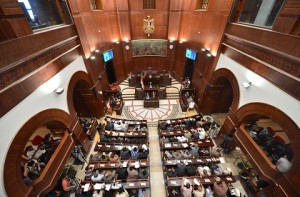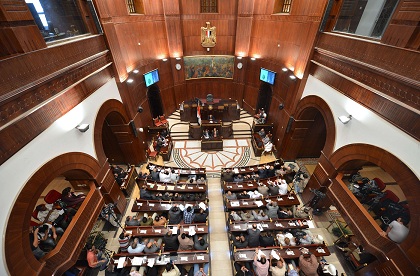
(AFP Photo)Shura
By Lamia Nabil
The Egyptian Centre for Economic and Social Rights (ECESR) launched a budget handbook series on Sunday which aims to explain citizens’ rights regarding state budgets.
The first handbook in the series discusses the international standards regarding budget transparency through using the International Budgets Partnership (IBP), which rates governments according to fiscal transparency and reform efficiency.
The initiative tries to analyse the published budget summary in order to ascertain if the government allows the public to have adequate access to the budget’s contents and whether the government will provide an opportunity for national participation during the budget’s preparation process.
The handbook shows that in 2006 Egypt had an 18% international transparency rating for budget information, a pre-budget statement, and a people’s budget that the public was not allowed to view.
In 2008 the government reached a higher level of transparency, 43%, due to the executive budget proposal which the government made available to the public.
In 2010 Egypt’s transparency rating inched up to 49% due to a mid-year report and the year-end report regarding the budget, both of which were also made available to the public.
In 2012 the handbook mentioned that Egypt’s transparency rating was slashed to 13% due to the transitional period following the 25 January Revolution which was presided over by the country’s military.
“Egypt’s transparency rating deterioration in the year that followed the revolution was due to the military’s penchant for withholding information, which led the military to adopt the general budget proposal before popular approval,” said the handbook.
The ECESR handbook also underlined budget control which it sees as a whole-year enterprise involving civil society groups, NGOs and citizens in general.
The country’s budget was presented to the Shura Council on 23 April.




